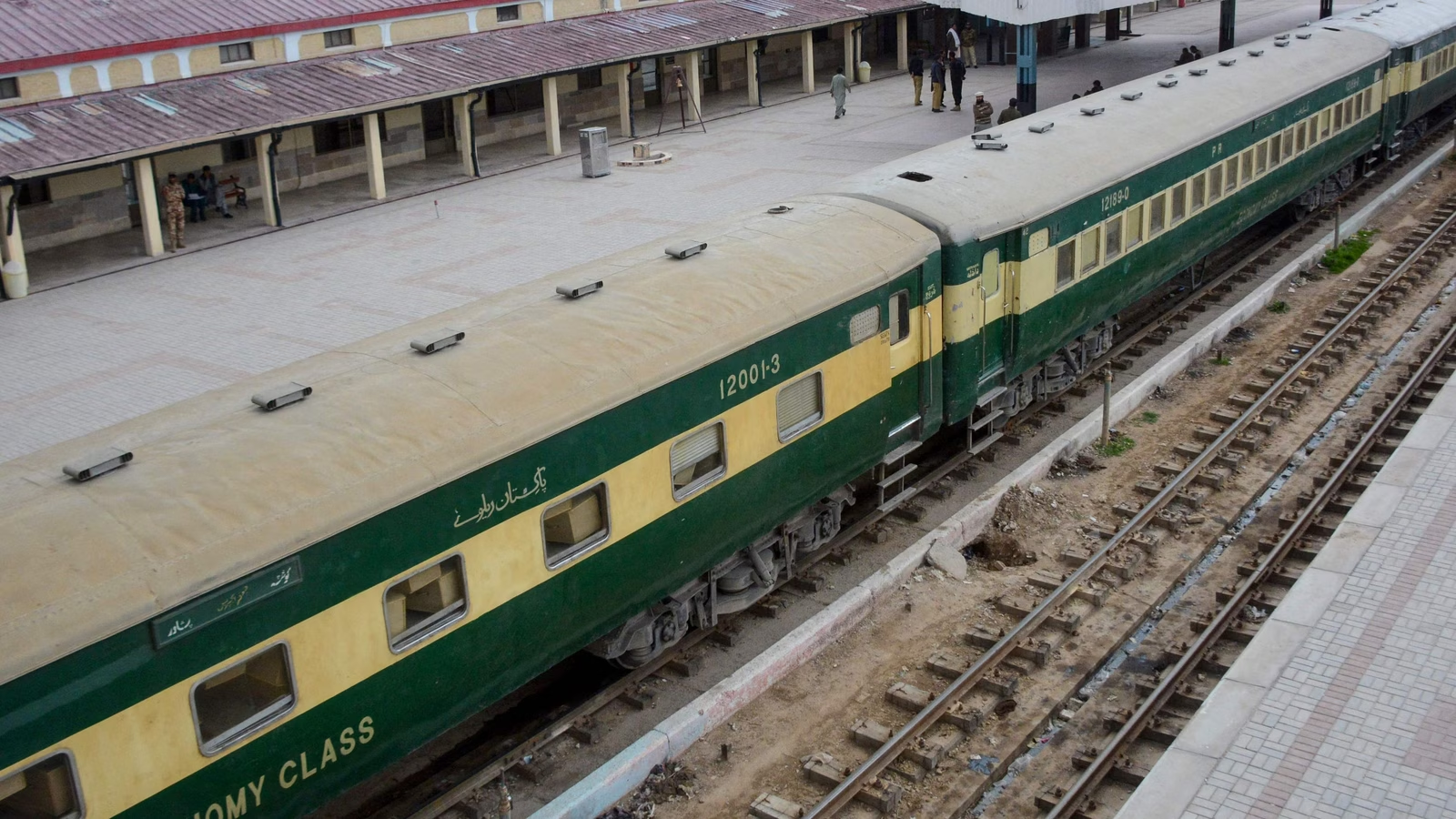A Tragic Turn: Casualties Mount in Latest Balochistan Bus Attack
The serene, yet often turbulent, landscapes of Pakistan’s Balochistan province were once again marred by violence on Wednesday, July 16, 2025. A passenger bus, traversing the vital route through the Kalat district, came under a brutal gun attack, leaving at least three innocent lives tragically lost and seven to eleven others wounded. This devastating Balochistan bus attack has cast a pall of grief and fear over the region, highlighting the persistent security challenges faced by its inhabitants.
Key Details of the Balochistan Bus Attack:
- Date and Time: Wednesday, July 16, 2025, around 5:20 p.m. local time.
- Location: Nimargh area, Kalat district, Balochistan province. The incident occurred on the route between the provincial capital, Quetta, and the southern port city of Karachi.
- Casualties:
- Fatalities: 3 individuals confirmed dead.
- Injuries: Between 7 and 11 people sustained injuries, with several reportedly in critical condition.
- Nature of Attack: Gunmen opened fire on the moving passenger bus, and some reports also indicate the use of a rocket-propelled grenade. The assailants fled the scene immediately after the attack.
- Response:
- Security forces, district administration, and rescue teams swiftly arrived at the site.
- The injured were immediately transported to the District Headquarters Hospital (DHQ) in Kalat, where an emergency was declared.
- A comprehensive search operation was launched by security forces to apprehend the perpetrators.
- Perpetrators and Claims of Responsibility:
- No group immediately claimed responsibility for this specific Balochistan bus attack.
- However, authorities, including Pakistan’s Interior Minister Mohsin Naqvi, have attributed such acts to Indian-backed separatists, a claim New Delhi routinely rejects.
- The outlawed Baloch Liberation Army (BLA) is frequently blamed for similar attacks in the region, given its history of insurgency against the Pakistani state.
- Balochistan has been a hotspot for various separatist militant groups demanding independence from Pakistan’s central government.
The Broader Context of Violence: Understanding the Balochistan Bus Attack Landscape
The recent Balochistan bus attack is not an isolated incident but rather a grim reminder of the long-running insurgency and deteriorating security situation in Balochistan. The province, bordering Afghanistan and Iran, is Pakistan’s largest yet least populated, and is rich in minerals. However, it has been plagued by ethnic Baloch fighters who accuse the Pakistani authorities of exploiting their resources and discriminating against them.
- Recent Precedents: This attack comes just days after another horrifying incident on July 10-11, 2025, where nine passengers were abducted and killed after being pulled from buses in the Zhob and Loralai districts of Balochistan. In that instance, the victims were reportedly targeted based on their Punjabi ethnicity, and the Balochistan Liberation Front (BLF) later claimed responsibility.
- Insurgent Tactics: Militant groups often target civilians, security forces, and public transport on major highways. Their actions frequently involve checking identity documents to identify individuals from other provinces, particularly Punjab, before abducting and killing them.
- Government Stance: Pakistani authorities consistently affirm their commitment to quelling the insurgency and bringing perpetrators to justice. They often blame external forces, such as India, for sponsoring terrorism in the region, a charge that India denies.
- Humanitarian Impact: Beyond the immediate casualties, these attacks inflict widespread fear and disrupt daily life, transportation, and economic activities, further destabilizing an already fragile region. The constant threat of a Balochistan bus attack or other forms of violence severely impacts the mobility and well-being of ordinary citizens.
Seeking Justice: The Aftermath of the Balochistan Bus Attack
In the wake of the latest Balochistan bus attack, the government has reiterated its resolve to hunt down those responsible. An emergency has been declared at the local hospital, and extensive search operations are underway. The swift response by security and rescue teams underscores the urgency with which authorities are addressing the crisis.
- Official Condemnations: Pakistani leaders, including Prime Minister Shehbaz Sharif and Interior Minister Mohsin Naqvi, have vehemently condemned these acts, vowing that the blood of innocent victims will not be shed in vain. They have emphasized that targeting innocent citizens is an act of open terrorism.
- Public Safety Concerns: The recurring nature of these incidents raises serious questions about the effectiveness of security measures on public transport routes in Balochistan. Passengers remain vulnerable, and the psychological toll on communities is immense. The fear of another Balochistan bus attack looms large.
- Ongoing Operations: Security forces are actively pursuing the attackers in the rugged terrain of Kalat, indicating a determined effort to restore peace and order. However, the elusive nature of these militant groups makes their apprehension a challenging task.
Moving Forward: Addressing the Root Causes of the Balochistan Bus Attack Cycle
The tragic Balochistan bus attack serves as a stark reminder of the complex socio-political and security challenges confronting Pakistan. While immediate law enforcement actions are crucial, a long-term solution necessitates addressing the underlying grievances that fuel insurgency in Balochistan.
- Dialogue and Development: Beyond military operations, efforts towards fostering dialogue with disaffected groups and accelerating socio-economic development in the region are paramount. Addressing issues of perceived neglect and resource distribution could help alleviate some of the drivers of militancy.
- Regional Stability: The instability in Balochistan also has regional implications, given its strategic location. International cooperation in combating terrorism and supporting peace-building initiatives could play a vital role.
- Protecting Civilians: Enhanced intelligence gathering and proactive security measures are essential to protect innocent civilians who rely on public transport for their livelihoods and daily commutes. Preventing future instances of a Balochistan bus attack must be a top priority.
The July 16th Balochistan bus attack is a painful chapter in the ongoing struggle for peace in the province. As rescue efforts continue and investigations unfold, the focus remains on delivering justice to the victims and ensuring the safety of all citizens in Balochistan.
Discover more from RastriyaSamachar24x7
Subscribe to get the latest posts sent to your email.




